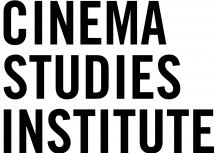Call for Proposals: SFU CMNS Interdisciplinary Grad Conference
The graduate program at Simon Fraser University’s School of Communication annual CONDUITS conference invites scholars to think through our 2023 theme of Ex:tension.
Extension, the act of lengthening, is a dynamic movement, and Marshall McLuhan suggests that the use of media as a tool is a mutual shaping process: elongation shapes the direction and understanding of that medium, and in turn, the use of media to extend shapes how we make sense of the world.
Since its publication in 1964, McLuhan’s theory of extension has been subject to critique in both scholarly and non-scholarly work. Scholars have suggested such conceptualization as being too deterministic (Postman, 1985; Carey, 1989; Williams, 1990; Poster, 2010), limited in scope (Murray, 1997; Bolter and Grusin, 1999; Hayles, 1999), reductive (Williams, 1974; Debrays, 1996; boyd, 2014), insular and narrow-minded (Rushloff, 2013; Kittler, 2002), optimistic (Carr, 2010; Lanier, 2010), and inattentive to dimensions of power and control (Dean, 2010; Lovnik, 2011; Turkle, 2011; Noble, 2018).
More recent interventions have emphasized that McLuhanian extension is both singular and universalizing. It is not all bodies being extended, but rather one very specific body, resulting in a theory that doesn’t meaningfully consider the ways media and technology structure contemporary experiences of race, gender, sexuality, and class (Sharma, 2017; 2022). Rather than entirely disregard McLuhan, these interventions suggest that we instead think about his work as a springboard to explore the more generative dimensions and understandings woven into extension.
Drawing upon the idea that McLuhanian extension doesn’t account “for everything and everyone” and is “up for grabs” (Sharma, 2022, p. 180), the theme of Ex:tension encourages emergent and contemporary understandings, reworkings, expansions, complications, deepenings, remixes, resistances, and refusals of what technological and mediated extension is, was, and can be. We also invite work that considers the gaps, fractures, and slippages along extended lines, as well as explorations of liminal spaces that negotiate the boundaries of mediated and technological extension.
Submissions that engage with the theme of Ex:tension might include, but are not limited to the following:
- Feminist, environmental, Indigenous, queer, critical race, intersectional, and/or interdisciplinary theories and approaches that illuminate and animate contemporary forms of mediated and technological extension
- Over/extensions of state or corporate power and/or the corresponding contestations of that power
- Studies of social movements such as the Woman, Life, Freedom uprising, Extinction Rebellion, and Indigenous Rising
- Considerations and practices of futurisms and radical imaginaries through creative communication
- Case studies of intertextual extension and immersion into/of emerging media technologies
- Extractivist and neo-colonial ideologies of overextension in environmental and data studies
- Reflections on mediated and technological formations of compassion and care
- Digital in/visibility and the positioning of migrants in liminal space through questions of identity, representation, sovereignty, voice, and subjectivity
- Political economic analyses of creative and technological industries, platforms, and labour dimensions
Popular culture as extension of pedagogy, informal learning, and entertainment as education
The CONDUITS organizing committee values the interdisciplinary nature of the graduate program at the School of Communication at SFU, and as such, we welcome submissions from a wide variety of academic backgrounds. Past presenters at CONDUITS have come from a wide range of different fields and disciplines, including media studies, film production, geography and urban studies, environmental sciences, computer sciences, anthropology, gender studies, sociology, and political science.
Maria Sommers (she/her)
MA Student | School of Communication
Researcher | Digital Democracies Institute
Simon Fraser University
maria_sommers@sfu.ca
Archives
Membership Services / Adhésion
To join or renew with FMSAC, please click here to access Membership Services.
Pour se joindre à l'ACÉCM ou pour renouveler votre adhésion, cliquez ici pour accéder aux services aux membres.
For more information about membership benefits, click here.
Pour plus d'informations sur des avantages d'adhésion, cliquez ici.











